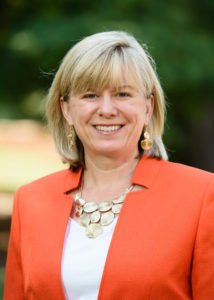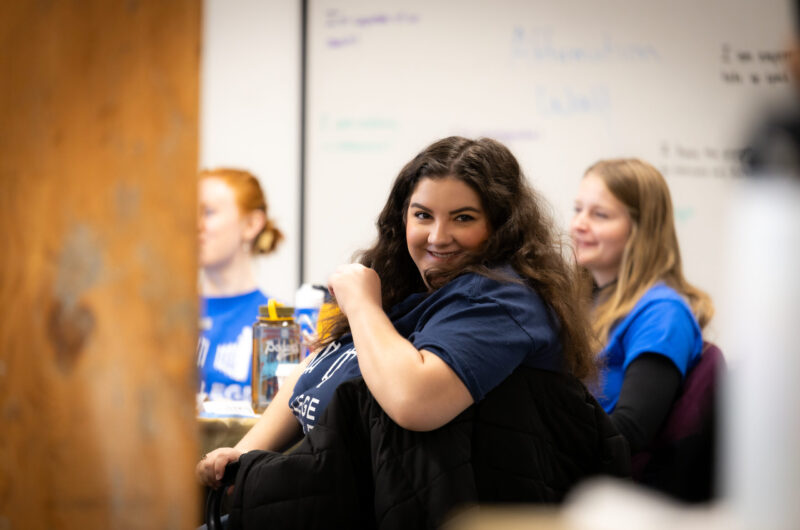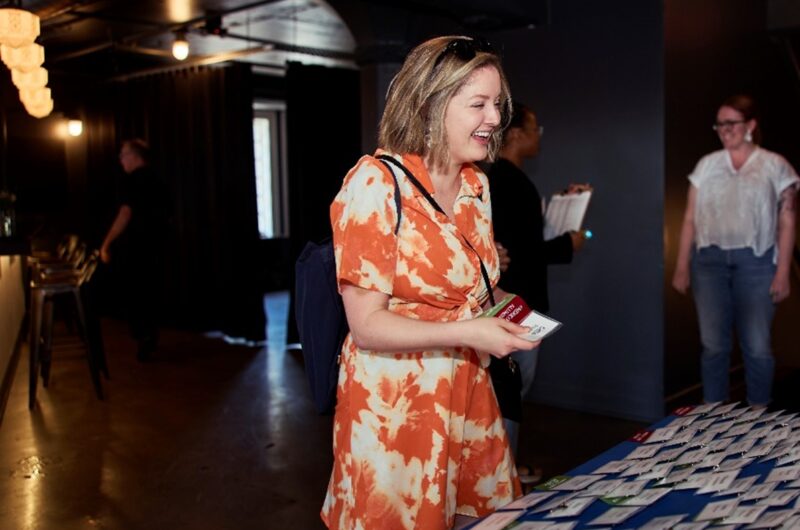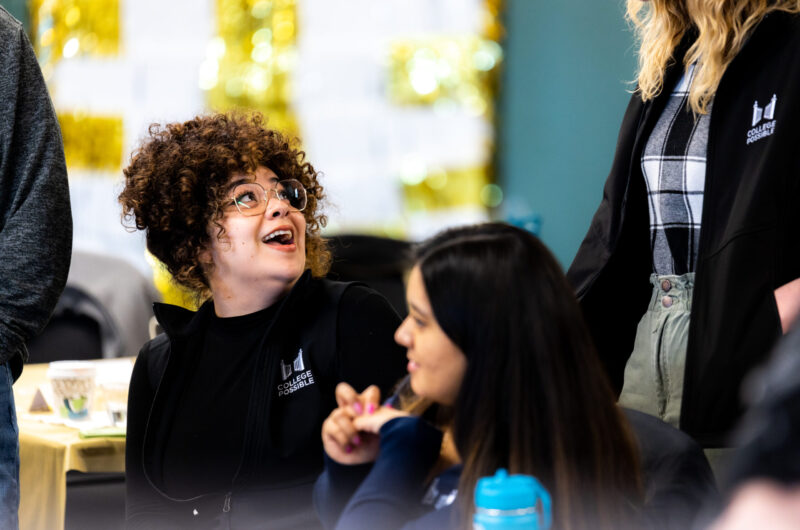College Possible Oregon is thrilled to welcome Cari Allyn Brooks to the team as the new assistant director of college success. We asked Cari a few questions so you could hear directly from her.
 Cari Allyn Brooks
Cari Allyn Brooks
She/her/hers pronouns
Miami University, Bachelor of Arts, Master of Arts
Clemson University, Doctor of Philosophy, defending 2022
Why College Possible, and why now?
In my graduate program I read so much amazing research that could change people’s lives, but only other academics actually ever see most of it. I decided that instead of conducting research, I want to be the boots on the ground enacting what we learn. College access and success have been my driving interest ever since I started working as a graduate student in a tutoring center in 1992. I believe college degrees are one of the most reliable ways to interrupt cycles of generational poverty, and I believe that everyone is “college material.” The “why now” piece has a more practical answer: my family is relocating to Portland, where my husband started a job at Portland State University about 18 months ago. I stayed in South Carolina with my youngest daughter so that she could complete high school before we move. She’s excited to be starting at Oregon State University in the fall to major in ecological engineering, and my husband and I are thrilled to live in the same city again!
What are you most excited to accomplish as the assistant director of college success?
I am most excited that all of the different threads of my education and career to this point are being pulled into one cohesive body of work, which I hope will enable me to help mitigate the effects of unjust systems and empower talented students from all backgrounds to thrive in college and beyond. More specifically, I am eager to deepen our relationships with our college partners in service of student success.
What are you looking forward to adding to the Oregon team, and what are you looking forward to learning?
I bring with me 30 years of experience within higher education, in roles including academic coach, instructor, advisor, writing center director and student services administrator. I hope that my higher education “insider” perspective will serve the organization well as I continue the development of strong partnerships with colleges, universities and community colleges. This will be my first employment experience in the nonprofit sector, so I look forward to learning all I can about the culture, values and processes of this environment.
What’s the biggest issue you see facing students today and do you have any solutions to them?
Believe it or not, I was also asked this question on my comprehensive exams for my Ph.D. program. I’ll give you the short version of my answer. For being a nation that celebrates freedom and prides itself on the belief that anybody can succeed if only they work hard enough, it is shocking and scandalous how much of our lives are determined by the accident of our birth and the paths we are set on (or kept from) as a result. Do I have a solution? YES! I’m going to work for College Possible!
You’re very close to earning your Ph.D., can you tell us more about your area of study and how you chose the thesis you’re working on?
I’m glad you said I’m close, because sometimes it feels like I am standing at the base of Mount Everest looking up and I’m wearing flip flops and a sundress! My field of study is learning sciences, an interdisciplinary education degree all about, you guessed it, how people learn. My focus area is issues of social justice and equity in higher education, and my dissertation explores the ways in which people experience being shaped by ability group placements and tracking, especially as they enter formal schooling. At the ages of four, five, and six we are dividing up our population into which students will and will not ultimately go to college and reap all the benefits that come along with a college degree, which include everything from a longer life span to greater likelihood of home ownership to earning over a million dollars more over the course of a career, not to mention greater happiness and job satisfaction.
And I’m sure it will surprise nobody to know that if you dig into those group placements, children of color and children from families with fewer financial resources are systematically placed in the bottom tracks. What happens next? Go into an American high school and ask to see a senior level AP calculus or AP literature classroom. The odds are high that the same kids put in the high group when they started school will be in those rooms, with their college pathways laid out before them clearly, while the members of the low groups are sent off to the vocational campus, if they are even still in school. The research refers to the phenomenon as “The Matthew Effect”: the rich get richer, and the poor get poorer.
In my project, I will be asking young adults from varied backgrounds to write literacy narratives, telling the story of how they learned to read. As a college English instructor I used to give a similar assignment, and every year it broke my heart. The same story would be repeated again and again, “When I was little, I loved books. My grandmother took me to the public library. My sister would read to me at bedtime. My parent would surprise me with a special book as a gift. Then I went to school and I got put in the bluebird/buckeye/Superman group (insert your favorite euphemistic label for the low group) and I’ve been a bad reader ever since.” I am studying how people’s self-perceptions of their own literacy and, by extension, their attitudes toward schooling, correlate to their memories of those early reading group experiences. I chose this study because I hope to provide meaningful evidence of the lasting damage caused by ability grouping and tracking in school.
How do you like to spend your time outside of work?
I am a Disney nerd. I not only like to go on Disney vacations, but you will also find me reading Disney newsletters, listening to Disney podcasts and studying Disney history. As a matter of fact, my son took a senior-level college history class on Disney history, and I told him I would pay for the books if I could keep them when he finished. It’s a weird hobby, but I figure if we have to live in a capitalist society, at least I can celebrate that there is an entire industry devoted to storytelling, imagination, fun and quality service. In addition to my Disney fixation, you can find me spending time with my family, the center of my life. My husband and I have been married 29 years and he’s my best friend. My oldest daughter, Jalen, just graduated from law school and married her phenomenal wife, Emily, who is a computer scientist at Boeing. After passing the bar, Jalen will work in environmental law in the nonprofit sector. My son, Charlie, is a music major at Clemson University in South Carolina. He plans to go to graduate school for jazz studies and hopes to play his saxophone for a living for the rest of his life. My youngest, Anna, in addition to heading off to college in the fall, is an accomplished equestrian.
The thing people are most surprised to learn about me is…?
I once went to WrestleMania with my son… and I LOVED IT.
Please join us in welcoming Cari to Oregon. If you want to connect to talk about college success, please reach out to her at CBrooks2@CollegePossible.org.


